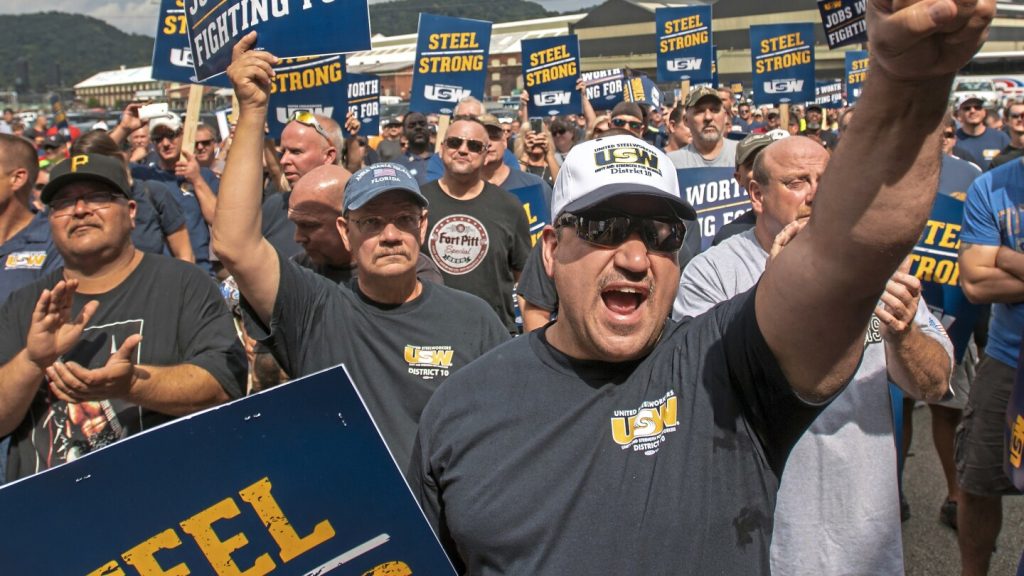The United Steelworkers Union has endorsed President Joe Biden, citing his support for retirement security, affordable healthcare, and laws that benefit workers. This comes as another significant labor union backs Biden in his race against Donald Trump. The decision to support Biden comes after he voiced opposition to the planned sale of U.S. Steel to Nippon Steel of Japan, a move that could impact unionized workers and the American-owned status of the company. The AFL-CIO, United Auto Workers, and other unions have also endorsed Biden, while the Teamsters union is yet to announce their pick.
Biden’s opposition to Nippon’s planned acquisition of U.S. Steel aligns with the USW’s concerns about whether the Japanese company would honor existing labor agreements. This decision puts him at odds with the business community and potentially strains relations with Japan, a key ally. U.S. Steel, headquartered in Pennsylvania, a crucial swing state in this year’s election, holds significance in terms of both economic and political factors. Trump had previously stated he would block the acquisition, emphasizing the importance of maintaining American ownership over strategic industries.
The USW’s endorsement of Biden underscores the importance of his stance on protecting American jobs and supporting organized labor. The union, representing 850,000 workers in various industries, believes that Biden’s track record demonstrates a commitment to workers’ rights and issues that directly impact its members. With the upcoming election approaching, labor unions play a crucial role in shaping the political landscape, particularly in swing states where support from unions can sway the outcome.
The debate over the sale of U.S. Steel to Nippon Steel highlights broader concerns about foreign acquisitions of American companies and the potential impact on national security and economic interests. While Nippon has argued that the acquisition would benefit U.S. Steel, union workers, and American supply chains, the opposition from Biden and other labor unions raises questions about the implications of foreign ownership in critical industries. As the campaign unfolds, these issues are likely to remain at the forefront, shaping voters’ perceptions of each candidate’s stance on economic policies and worker protections.
Biden’s endorsement by the USW adds to his momentum among key segments of the electorate, particularly blue-collar workers and union members. By aligning himself with the priorities of organized labor, Biden seeks to solidify his support among working-class Americans who have been affected by economic uncertainties and challenges in recent years. The union’s endorsement also sends a signal to other labor groups and voters about Biden’s commitment to addressing the needs and concerns of working families, positioning him as a candidate who will prioritize workers’ rights and well-being.
In the midst of a contentious election season, Biden’s endorsement by the USW underscores the significance of labor unions in shaping the political landscape and influencing key policy decisions. The union’s support highlights Biden’s appeal to working-class voters and his alignment with the priorities of organized labor, particularly in key swing states like Pennsylvania. As the race between Biden and Trump heats up, the role of labor unions and their endorsements will continue to play a crucial role in mobilizing support and shaping the outcome of the election, making them a significant force to watch in the coming months.


